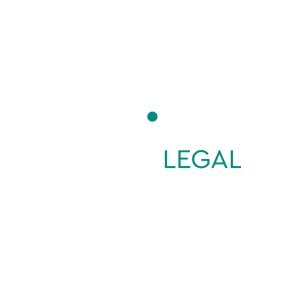Best International Lawyers in Mauritius
Share your needs with us, get contacted by law firms.
Free. Takes 2 min.
Or refine your search by selecting a city:
List of the best lawyers in Mauritius
About International Law in Mauritius
Mauritius, being a hub for international trade and investment, has established a strong legal framework to govern international law. The country is a member of various international organizations and agreements, such as the United Nations, the World Trade Organization, and the African Union. Its legal structure is a hybrid, reflecting both the civil law tradition inspired by the French legal system and the common law principles from the United Kingdom. Thus, Mauritius is well-equipped to handle international legal matters, including trade disputes, international arbitration, and treaty enforcement.
Why You May Need a Lawyer
There are several scenarios where you might need legal assistance regarding international law in Mauritius. This may include engaging in international business transactions, dealing with cross-border family law matters, dealing with immigration issues, protecting intellectual property rights in a global market, or resolving international disputes. Additionally, navigating international treaties and ensuring compliance with multi-jurisdictional legal requirements can be complex, requiring expert legal advice.
Local Laws Overview
Mauritius has crafted various local laws to align with international standards. Some of the key aspects include:
- Trade Laws: Regulated under the Customs Act and guided by international trade agreements, ensuring smooth export and import activities.
- Intellectual Property: Protected by the Copyright Act and the Patents, Industrial Designs and Trademarks Act, which adhere to global IP standards.
- International Arbitration: Governed by the International Arbitration Act, providing a framework for resolving cross-border disputes.
- Immigration Laws: Spelled out in the Immigration Act, dealing with international mobility, work permits, and residency for foreign nationals.
Frequently Asked Questions
What is the role of international law in Mauritius?
International law in Mauritius plays a crucial role in governing relations with other countries and international organizations. It ensures that Mauritius complies with global standards and treaties, promoting international cooperation.
How do Mauritian courts handle international disputes?
Mauritian courts can adjudicate international disputes, often utilizing international conventions and local laws. Arbitration is also a favored alternative, with Mauritius being a respected arbitration venue.
Is Mauritius a signatory to major international treaties?
Yes, Mauritius is a signatory to numerous international treaties, including human rights conventions, trade agreements, and environmental protection treaties.
What are the common international trade challenges in Mauritius?
Challenges might include regulatory compliance, understanding tariffs, trade restrictions, and navigating bilateral agreements or trade disputes.
How is intellectual property protected internationally in Mauritius?
Intellectual property is protected through robust local laws that align with international treaties like the TRIPS Agreement, ensuring both local and foreign rights holders are safeguarded.
What is the process for obtaining international legal recognition of a Mauritian judgment?
Such recognition typically involves bilateral or multilateral treaties and conventions like the Hague Convention, facilitating mutual recognition and enforcement of judgments.
Are there international law firms in Mauritius?
Yes, several law firms specialize in international law, offering services that encompass cross-border legal issues, arbitration, and multinational corporate law.
How can international residents deal with legal issues in Mauritius?
International residents should seek advice from local legal experts familiar with both Mauritian law and international legal principles to adequately address their issues.
What is the importance of international arbitration in Mauritius?
Mauritius is a hub for international arbitration, providing a neutral venue with well-defined legal frameworks that support speedy and fair resolutions through arbitration.
Can foreign investors seek protection under international law in Mauritius?
Yes, international investment laws in Mauritius, supported by treaties, ensure that foreign investors' rights are protected.
Additional Resources
For those seeking more information or assistance in international law, consider reaching out to the following:
- Mauritius Bar Association: Offers resources and directory for finding qualified international law solicitors.
- Board of Investment Mauritius: Provides guidance on international business ventures and compliance.
- International Arbitration Centre in Mauritius: Facilitates resolution of international disputes through arbitration.
- Mauritian Government Portal: Access to information on treaties, international agreements, and relevant governmental departments.
Next Steps
If you need legal assistance in the field of international law in Mauritius, it is advisable to start by documenting all relevant information, including contractual agreements, correspondence, and pertinent legal documents. Seek out a specialized lawyer or law firm with experience in international matters. Conduct consultations to understand your position and explore potential strategies or solutions. Additionally, consider joining professional networks or associations in Mauritius that focus on international issues for further guidance and support.
Lawzana helps you find the best lawyers and law firms in Mauritius through a curated and pre-screened list of qualified legal professionals. Our platform offers rankings and detailed profiles of attorneys and law firms, allowing you to compare based on practice areas, including International, experience, and client feedback.
Each profile includes a description of the firm's areas of practice, client reviews, team members and partners, year of establishment, spoken languages, office locations, contact information, social media presence, and any published articles or resources. Most firms on our platform speak English and are experienced in both local and international legal matters.
Get a quote from top-rated law firms in Mauritius — quickly, securely, and without unnecessary hassle.
Disclaimer:
The information provided on this page is for general informational purposes only and does not constitute legal advice. While we strive to ensure the accuracy and relevance of the content, legal information may change over time, and interpretations of the law can vary. You should always consult with a qualified legal professional for advice specific to your situation.
We disclaim all liability for actions taken or not taken based on the content of this page. If you believe any information is incorrect or outdated, please contact us, and we will review and update it where appropriate.
Browse international law firms by city in Mauritius
Refine your search by selecting a city.

















